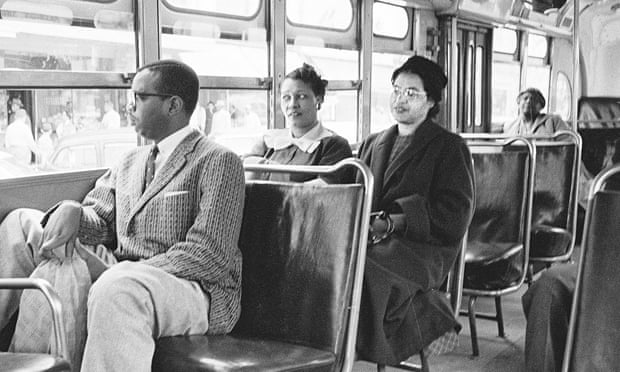Atticus Finch’s advice to his daughter inspired Shami Chakrabarti’s career as a lawyer and campaigner. The director of Liberty explains why Harper Lee’s themes still resonate today

The justice secretary and I don’t seem to agree on much at the moment. But one thing we do have in common: last year, Michael Gove wrote, “Do I think Of Mice And Men, Lord Of The Flies and To Kill A Mockingbird are bad books? Of course not. I read and loved them all.”
Admittedly, he was responding to reports that he wanted to ban Harper Lee from the GCSE syllabus, in favour of English writers – a claim he denied. But since Gove might preside over our justice system for the next half-decade, I am delighted he loved To Kill A Mockingbird; in fact, I would suggest he take a break from drawing up plans to repeal the Human Rights Act and reread it. Perhaps it will make him think twice.
The novel had a profound effect on me. When I first read Mockingbird, as a teenager in 1980s north-west London, I was utterly transported – to small-town 1930s Alabama, a place of spittoons, shingles, scolds and smilax. To Maycomb, with its chinaberry trees, rabbit-tobacco and single taxi – where there was “no hurry, for there was nowhere to go”. To the world of the wonderfully funny and audacious Scout – a timeless heroine for every little girl with a head full of questions and an appetite for a good fight (“He said I was the only girl he would ever love, then he neglected me. I beat him up, but it did no good”). It seemed so real to me; I could taste the scuppernongs and smell the sweet talcum. More
Admittedly, he was responding to reports that he wanted to ban Harper Lee from the GCSE syllabus, in favour of English writers – a claim he denied. But since Gove might preside over our justice system for the next half-decade, I am delighted he loved To Kill A Mockingbird; in fact, I would suggest he take a break from drawing up plans to repeal the Human Rights Act and reread it. Perhaps it will make him think twice.
The novel had a profound effect on me. When I first read Mockingbird, as a teenager in 1980s north-west London, I was utterly transported – to small-town 1930s Alabama, a place of spittoons, shingles, scolds and smilax. To Maycomb, with its chinaberry trees, rabbit-tobacco and single taxi – where there was “no hurry, for there was nowhere to go”. To the world of the wonderfully funny and audacious Scout – a timeless heroine for every little girl with a head full of questions and an appetite for a good fight (“He said I was the only girl he would ever love, then he neglected me. I beat him up, but it did no good”). It seemed so real to me; I could taste the scuppernongs and smell the sweet talcum. More
No comments:
Post a Comment